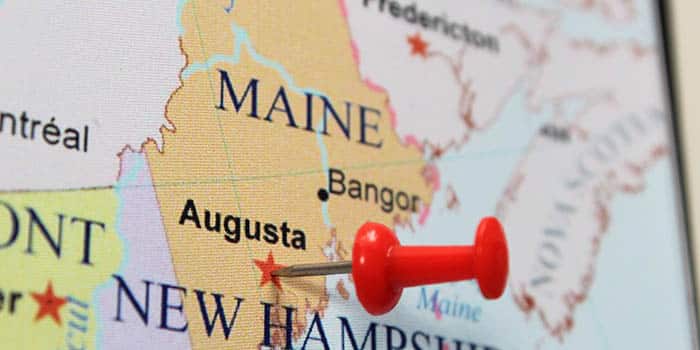Maine lawmakers will reconsider LD 1164, a bill that would legalize online casinos through tribal partnerships, during a special legislative session scheduled for June 18


Maine lawmakers are once again considering whether to open the door to online casino gaming or not, and the debate is, as expected, a heated one.
During a special legislative session set to adjourn on June 18, legislators will revisit LD 1164, a bill that would make online casinos legal in the state through exclusive partnerships with the state’s four federally recognized tribes, the Wabanaki Nations.
Taking Care of “Unfinished Business”
The proposal, introduced by Rep. Ambureen Rana, was tabled earlier this year following a unanimous vote in the Joint Veterans and Legal Affairs Committee, but it’s now back on the agenda as “unfinished business.”
If passed, LD 1164 would grant each tribe a license to partner with one iGaming operator.
Online casino revenue would be taxed at 16%, with oversight falling under the jurisdiction of the state’s Gambling Control Unit, which is the same agency that currently regulates sports betting.
Supporters see the bill as a way to expand economic opportunities for tribal nations, which also control mobile sports betting operations under Maine’s current gambling laws. However, as expected, not everyone is on board.
Market Exclusivity on the Line
Two of Maine’s brick-and-mortar gambling properties, Churchill Downs-owned Oxford Casino and PENN Entertainment’s Hollywood Casino Hotel & Raceway Bangor, have come out firmly against the measure. Their main concern regards market exclusivity.
“This bill would create a gaming monopoly for the Wabanaki Nations with little economic benefit to Maine,” Dan Walker, a representative for Oxford Casino, told lawmakers in April.
Several major players in the national iGaming space, including FanDuel, BetMGM, and Fanatics, have also weighed in. While they aren’t against the bill entirely, they’ve suggested it be revised to allow tribes to partner with more than one operator.
This isn’t the first time lawmakers have tried to bring iGaming to Maine. A similar bill, LD 1777, was introduced by Rep. Laura Supica in 2023.
That measure passed in the Senate but was narrowly defeated in the House, falling short by just five votes. It offered a lower 10% tax rate and would have also given the Wabanaki Nations exclusive rights to offer online casinos.
While LD 1164 takes a slightly different approach, the core debate remains: whether online gambling should be used as a tool to bolster tribal sovereignty, and whether the state’s commercial casinos should be left out of the equation.